Overview
The e-commerce and digital industry sectors have seen exceptional growth since the outbreak of the COVID-19 pandemic in 2020. Following the lockdown measures, many businesses and consumers shifted towards digital operations, accelerating the trend toward greater use of social media and increased e-commerce sales. In June 2020, global retail e-commerce traffic hit a new high of 22 billion monthly visits, increasing demand for everyday items like groceries and clothing and retail tech items.
2020 has been a year of accelerated (digitalization), and we believe that it is a shift to online lifestyles that is broad, deep, and irreversible.
Terence Pang, COO of SHOPEE for CNBC
The public and private sectors have taken various steps to address the pandemic’s challenges and mitigate its economic impact. Developing or updating a national e-commerce strategy is one of the most important measures taken, followed by increased e-commerce visibility through advertising campaigns, skills training programs and reduced e-payment transaction costs.
According to the ONS, foreseeable online sales increased by 46 % in 2020 compared to the previous year, the most significant increase since 2008.
UNCTAD’s e-commerce report shows that consumers in emerging economies made the most remarkable shift to online shopping.
Countries that harness the potential of e-commerce will be better placed to benefit from global markets for their goods and services in this digitalizing economy, while those that fail to do so risk falling behind even further.
Shamika N. Sirimanne, UNCTAD’s technology, and logistics director. UNCTAD e-commerce report
For example, in the second quarter of 2020, one of the biggest of Latin America’s online marketplaces sold twice as many products per day as it did the previous year. The online shares of retail sales in Kazakhstan grew from 5% in 2019 to 9.4 % in 2020. In only one week in March 2020, Thailand experienced a 60% increase in shopping app downloads.
Between the first quarter of 2018 and the first quarter of 2020, the share of e-commerce in total retail in the United States increased slowly (from 9.6 % to 11.8 %), then spiked to 16.1 % between the first and second quarters of 2020. The trend in the United Kingdom is similar; between the first quarter of 2018 and the first quarter of 2020, the share of e-commerce in retail increased from 17.3 % to 20.3 %, before increasing significantly to 31.3 % between the first and second quarters of 2020.
Internet users can browse, compare, and purchase items or services using a variety of online platforms. While some websites cater specifically to B2B (business-to-business) customers, individual consumers have access to various digital options. The unprecedented use of mobile devices is one of the most visible trends in the world of e-commerce. Smartphones accounted for nearly 70% of all retail website visits in 2021, though conversion rates on desktop and tablet visits were higher in 2020. Mobile integration will continue to shape the future shopping experience and the e-commerce sector as the adoption of mobile devices accelerates, especially in areas where other digital infrastructure is lacking.
Grails’ team have gathered a list of 109 top e-commerce brands for 2020, and here are some of the names on the list:
Namepicks
Casper
Headquartered in NYC, Casper is a public e-commerce company that manufactures and sells sleep products online and in retail locations. Casper has raised a total of $339.7M in funding over five rounds and has a post-money valuation in the range of $1B to $10B as of March 2019. The company is operating on the exact brand match domain name Casper.com.

BigBasket
Founded in 2011, BigBasket is an Indian online grocery delivery service. The company delivers personal and household items right to the customer’s doorstep. In May 2021, international conglomerate Tata Digital bought a 64% stake in BigBasket for an undisclosed amount. BigBasket has chosen the exact brand match domain name BigBasket.com.
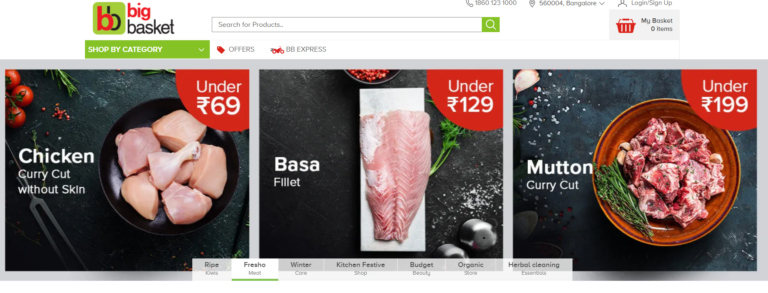
Tupuca
Tupuca is the first all-in-one delivery platform in Angola, allowing users to order almost anything on demand. The company was founded in 2015 and has raised $520K, funded by Seedstars. Tupuca is operating on the exact brand match domain name Tupuca.com.
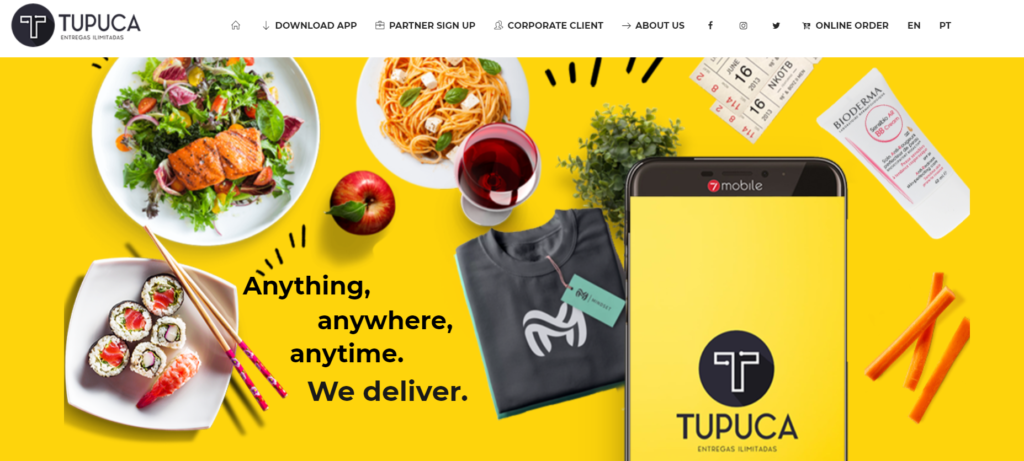
Zivame
Zivame is an online lingerie store based in India that allows customers to shop by category, brand, color, and size. The company has raised a total known funding amount of $69M. In July 2020, the company raised an undisclosed amount from a Secondary Market round. Zivame is operating on the exact brand match domain name Zivame.com.

Highlights
Eighty-three companies out of one hundred and nine are operating on the .com extension.
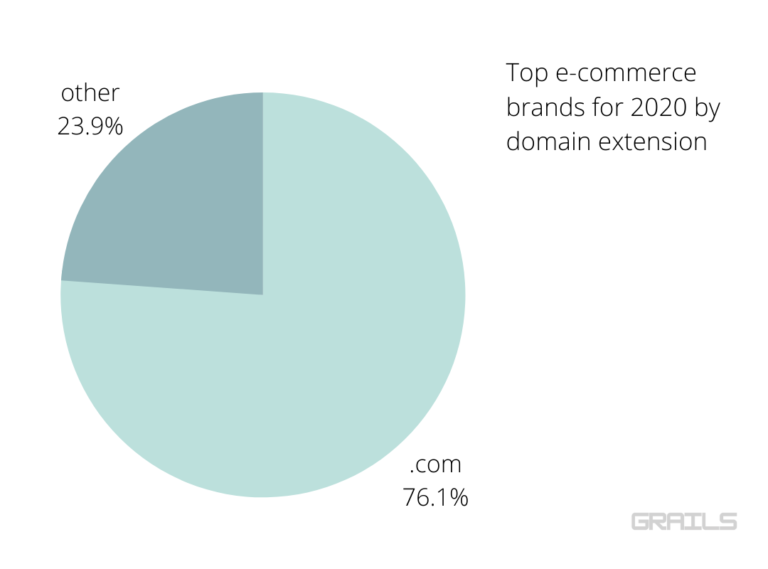
Seventy-eight top e-commerce brands for 2020 chose an exact brand match domain name. EBM (Exact Brand Match) domain names are easy to remember, type in and share and are the preferred choice of the internet’s largest companies.
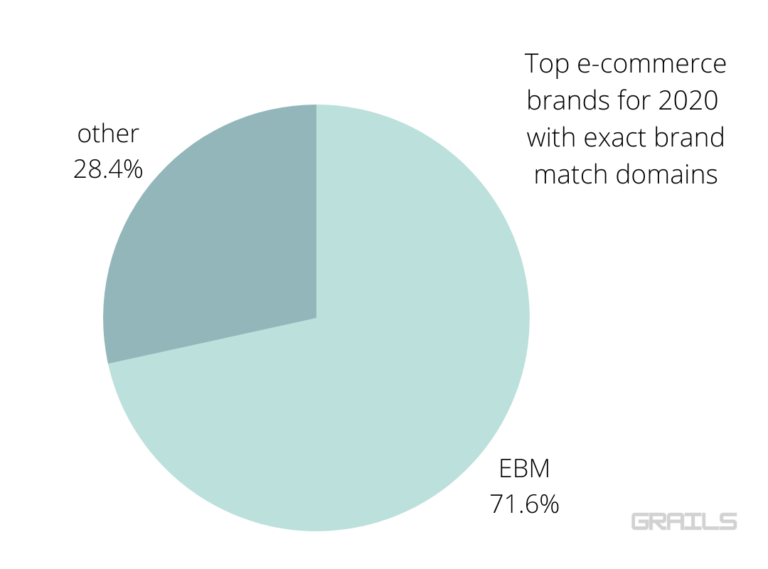
None of the brands are using dash in their domain name.
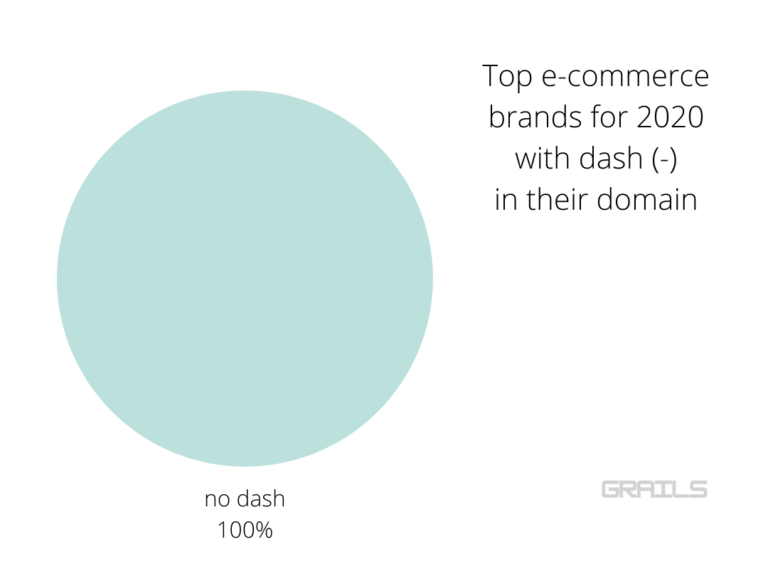
Five companies have chosen to operate on their country code extension domain name, commonly used when targeting local visitors in a specific geographic area.
| DOMAIN EXTENSION | TOP E-COMMERCE BRANDS FOR 2020 |
|---|---|
| .com | 83 |
| .com.br | 4 |
| .ai | 3 |
| .co | 2 |
| .co.uk | 1 |
| .io | 2 |
| .sg | 2 |
| .in | 1 |
| .cl | 2 |
| others | 9 |
While we make every effort to ensure the data on our site is accurate, complete, and up-to-date, we cannot guarantee its reliability. Our data is provided for informational purposes only and should not be relied upon as legal, financial, or other advice. We strongly recommend that you independently verify any information before relying on it.
How does your brand name match your company vision? What new horizons can a better name open? Get in touch if you feel your brand deserves a better name, we are always happy to help.
branding digital domain e-commerce EBM ecommerce naming online business online shopping startup

Previous Next